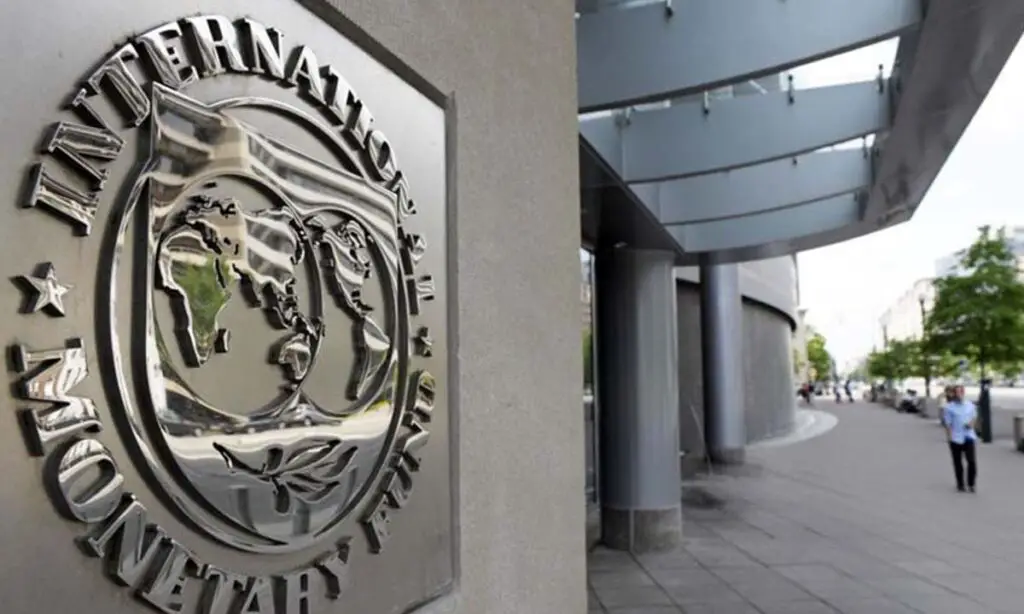The IMF dealt another blow to Zimbabwe’s debt problem, stating that Harare will not be eligible for a special debt relief programme unless it pays off its World Bank loan.
Zimbabwe has managed to clear the IMF debt, but the country still owes the World Bank $1.52 billion.
To qualify for the “common framework,” IMF spokesperson Gerry Rice said that Zimbabwe would have to wait until criteria for international re-engagement are in place.
They also have to clear the arrears to the World Bank.
Read: Pandora Papers: What do Russia & China have to do with Zimbabwe diamonds?
The lender stated during the conference that the country’s economic objectives were still under threat from unsustainable debt.
The government announced last week that external debt grew to US$13.7 billion in September, up from roughly US$10.7 billion the previous year.
Zimbabwe’s debt accounts for more than half of the country’s GDP.
Because of its World Bank arrears, Zimbabwe is currently ineligible to apply for debt relief under the Common Framework. They will only be eligible when they settle any outstanding debts to the World Bank and after achieving the requirements for international re-engagement. The common framework could be a helpful alternative for dealing with Zimbabwe’s debt problems, and the international community, for its part, will need to see improvements in domestic political and economic policies to begin re-engagement.
The common framework refers to an IMF initiative backed by the G20 and the Paris Club that coordinates official creditors to provide debt remedies to developing nations eligible for debt service suspension when they are needed.
The IMF says debt procedures under the common framework only launch on a case-by-case basis at the request of a debtor country.
The approach is to ensure comprehensive creditor engagement and equitable burden-sharing.
The common framework can be applied to various sovereign debt difficulties faced by qualified countries. According to the IMF, it can provide a deep debt restructuring for countries with unsustainable public debt, with a drop in the net present value of debt sufficient to restore sustainability.
Read: Rwanda sets its eyes on Zimbabwean teachers
It can enable a delay of a portion of debt service payments for several years, easing financial constraints for countries with manageable debt but liquidity concerns. Rescheduling or reprofiling are terms used to describe this type of treatment. High debt service payments can potentially be a source of debt vulnerability in countries with this debt treatment.
Developmental obstacles
The agreement aimed to assist the G20 and Paris Club countries in coordinating and cooperating on debt treatment for up to 73 low-income countries qualifying for the debt service suspension initiative.
On the other hand, Zimbabwe is now not part of the project due to its unsustainable debt and poor repayment record.
Zimbabwe got US$961 in SDRs from the IMF, which had an immediate impact on the country’s severely low gross international reserves.
Although social conditions improved as the economy improved, poverty levels in the Southern African nation remained high. Since the pandemic outbreak, a large proportion of households have had limited or no income, and social assistance programme coverage remains low. In 2021, the number of persons living below the international poverty line will be 6.1 million, with a slight decrease in 2022, thanks to expected economic development and decreasing inflation.
The drought, cyclone, and pandemic have created economic challenges and unusual shocks. Still, they have also provided opportunities to go forward with measures to preserve lives and livelihoods while supporting Zimbabwe’s long-term recovery.
Zimbabwe’s domestic policies must continue to maintain price stability and the efficient use of public resources, particularly in light of the country’s enormous financial needs to avoid a decline in human capital.
Read: Kenya seeking ‘way out’ of China SGR debt
